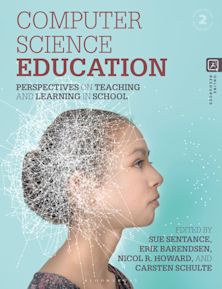- Home
- ACADEMIC
- Education
- Technology and Education
- Higher Education Planning in an Exponential Age
Higher Education Planning in an Exponential Age
A Continuous, Dynamic Process
Higher Education Planning in an Exponential Age
A Continuous, Dynamic Process
This product is usually dispatched within 1 week
- Delivery and returns info
-
Free CA delivery on orders $40 or over
You must sign in to add this item to your wishlist. Please sign in or create an account
Description
This book fulfills a need for planning in higher education due to the impending impact of ten twenty-first century technologies: 3D printing, artificial intelligence, autonomous vehicles, bitcoin/blockchain, genome development: agricultural, genome: medical, internet of things, nanotechnology, personal robot, and quantum computing. Each of these technologies develop in a two-stage manner: Stage 1, Linear, and Stage 2, Exponential.
Uber and Airbnb are excellent examples that developed for a short time in Stage 1, a step-by-step manner, before then reaching Stage 2, where they accelerated with exponential velocity. Both were able to accomplish rapid development through the use of digital support. The ten technologies listed above are all currently developing in Stage 1; however, each will reach Stage 2, and when they do, they will have powerful impacts on community colleges and universities. Their extremely rapid development in the second stage could take higher education by storm if the leaders, faculty, and staff are not prepared for them.
This book presents ARPAC, a planning method to successfully deal with the impact of these technologies. This planning method is critical for the future viability and success of community colleges and universities.
Table of Contents
Acknowledgments
Introduction
Chapter 1. Toboggan Theory
Chapter 2. Higher Education at the Precipice
Chapter 3. Technological Impact on Higher Education
Chapter 4. Mission and Vision
Chapter 5. ARPAC: A Strategic Planning Process
Chapter 6.ARPAC Step 1: Awareness
Chapter 7.ARPAC Step 2: Research
Chapter 8.ARPAC Step 3: Planning
Chapter 9.ARPAC Step 4: Action
Chapter 10.ARPAC Step 5: Caring
Chapter 11. Toward A Successful Future
Epilogue
Appendix
References
About the Author
Product details
| Published | Apr 10 2021 |
|---|---|
| Format | Hardback |
| Edition | 1st |
| Extent | 94 |
| ISBN | 9781475859683 |
| Imprint | Rowman & Littlefield Publishers |
| Illustrations | 1 table |
| Dimensions | 215 x 151 mm |
| Publisher | Bloomsbury Publishing |
About the contributors
Reviews
-
Leaders in higher education are constantly faced with having to adapt quickly to the demands of business and industry. As a proven scholar and leader in higher education, Darrel Staat has provided college leaders with a clear action plan to prepare for the exponential growth of technology in this ever changing digital world. This book is relevant, necessary, and timely!
Angela Davis, special assistant for Equity and Inclusion (President's Office), Durham Technical and Community College, Durham, North Carolina
-
Technology has never been more embedded in the working lives of educators. Impacting the needed skillsets for learning outcomes, community needs, and strategic planning is crucial. This must-read book allows for a lens into the planning, social dynamics, and challenges higher education is facing to keep pace with curriculum, delivery, and outcomes.
Angelo Markantonakis, Associate Vice President of Academic Programs, Rowan-Cabarrus Community College, Salisbury, North Carolina
-
Darrel Staat conveys, with welcome enthusiasm, a much-needed strategy to address the exponential changes that leaders in higher education are facing. As new technologies develop at an unthinkable speed, this book illustrates the possibilities that lie ahead for our institutions, if we will only look past the way things have always been.
Cristy Waugh Holmes, Associate Dean of Transfer and Advising, Central Carolina Community College, Pittsboro, North Carolina
-
Staat’s premise that higher education is on the precipice of an uncharted journey of change as it will be impacted by the exponential advances in 10 key technologies is unassailable. This book offers forward-thinking leaders a guide for moving their institutions firmly into a level of data-driven change management designed to permeate the institution and position it for thriving amidst the coming changes.
Karen Pauly, Dean, College and Career Readiness, Central Piedmont Community College, Charlotte, North Carolina
-
This book is a must read for any higher education stakeholder. A proven visionary and transformational leader in higher education, Dr. Darrel Staat provides keen and timely insight into the speed at which innovative change will occur through the year 2045 and beyond. Now more than ever college leaders must be proactive in re-engineering strategic planning processes to meet the needs of these exponentially evolving technologies or risk getting left behind.
Scott Queen, Executive Vice President, Alamance Community College, Graham, North Carolina
-
This bookis a must-read. Staat provides a great perspective on what higher education practitioners should be focusing their attention on in the twenty-first century. While technology continues to move at a rapid pace, community college and university leaders must continue to articulate the mission and vision of the institution to the students, employees, and the larger, diverse community.
Travis P. Gleaton, Associate Dean of Students/Title IX Coordinator, Greenville Technical College, Greenville, South Carolina



































